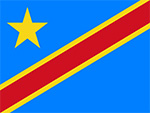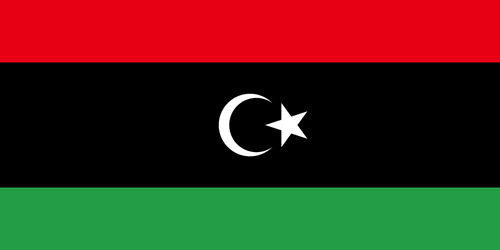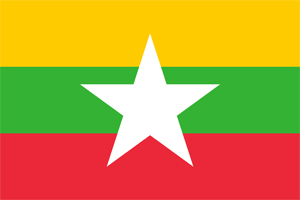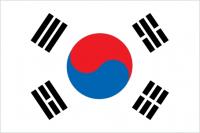IBM Sustainability Accelerator: Water Management
IBM
(
Private sector
)
#SDGAction50366
Description
The IBM Sustainability Accelerator is a pro bono social impact program that applies IBM technologies, such as hybrid cloud and artificial intelligence (AI), and an ecosystem of experts to enhance and scale nonprofit and government organization initiatives helping populations especially vulnerable to environmental threats including climate change, extreme weather, and pollution.
Now in its third year, the IBM Sustainability Accelerator is launching an RFP on March 14 and open through May 31 focused on water management. IBM will look to support projects that help advance equitable access to safe drinking water for all, improve hygiene and water quality by reducing pollution, increase water-use efficiency across society, reduce the number of people impacted by water scarcity, and protect water-related ecosystems, among other purposes. Nonprofit and governmental organizations are encouraged to submit a proposal for IT-driven projects that would benefit from hybrid cloud and AI solutions, software, data science-enabled insights, and/or expert consulting and design services. Successful proposals will deliver direct support to vulnerable populations at scale while advancing one or more of the targets of the United Nations Sustainable Development Goal 6.
The IBM Sustainability Accelerator will provide support to five selected organization, that will make up a cohort, for up to two years. During this timeframe, IBM will follow a comprehensive approach with each selected nonprofit or government organization, delivering user centered design, development, technical solutions, custom tools, scientific expertise, and mentorship while building community among the participants.
Phase 1 – Ideation: Accelerator engagements will kick off with the IBM Garage, IBM’s proven methodology to apply design thinking and agile techniques to fast-track meaningful innovation and drive lasting culture change. During this process, IBM experts will work with the beneficiary organization to rapidly identify their needs, understand the end user, and establish a clear roadmap to design, develop, deploy, and continually improve technology to solve specific public challenges. Specifically, the IBM Garage is a collaborative approach that brings together IBM
designers, architects, and developers with participating organizations to pitch, prototype and produce side-by-side to help transform organizations from the inside out.
Phase 2 – Development and Implementation: Based on the analysis and roadmaps established in Phase 1, IBM experts will configure IBM resources and technology to help participants meet their community and environmental impact goals. The projects will include the deployment of existing technologies or proven methodologies and the development of customized solutions that will help the organizations to scale their operations. IBM experts will then support pilot deployments of Accelerator-supported solutions to facilitate optimal implementation, sustainable use by the organization, and opportunities to further scale impact benefitting communities and society.
Wherever possible, projects will be delivered with local resources, in local languages and through local IBMers. This brings IBM closer to the needs of organizations and their stakeholders, enabling IBM to provide field-ready assets to support local communities
and produce local outcomes.
The IBM Sustainability Accelerator’s new water management cohort will accelerate SDG implementation by scaling technology solutions that address water-related issues by supporting availability and sound management of water and sanitation for vulnerable communities. To ensure that projects are successful during their time in the Accelerator and beyond, the selection criteria will take into account the applicant’s capacity and readiness to support communities who are especially vulnerable to water-related threats, technical feasibility and sustainability for the envisioned solution, and transparency on measurement and reporting, among others.
The Accelerator already has a track record of interlinking SDGs. Aligning with SDG 17 – Partnerships for the Goals, the IBM Sustainability Accelerator benefits from support from Strategic Allies, a variety of organizations and experts aligned to the IBM Sustainability Accelerator mission of innovating and scaling solutions for sustainability for underserved communities. These organizations are part of the program’s broad ecosystem that offers participants and projects additional subject matter and technical expertise. From innovation investments to support in the selection of new cohorts, these strategic alliances enrich and add value to the engagement of participating organizations.
The Accelerator’s first cohort focused on Sustainable Agriculture, SDG 2.4.1, and projects with two of our beneficiaries – Deltares and Texas A&M AgriLife, interlink with SDGs 6.3 and 6.4 respectively. Our second cohort’s focus is SDG 7 Clean Energy, and our project with Sustainable Energy for All has components related to SDG 3.
While we do not yet know the projects that will ultimately be selected for the new water management cohort, we will continue to seek ways where water management interconnects with other SDGs. Potential projects could include:
• Anticipating water shortages and infrastructure outage-inducing storms which interlinks with SDG 9: Build resilient infrastructure, promote inclusive and sustainable industrialization and foster innovation
• Reducing water pollution which interlinks with SDG 3: Ensure healthy lives and promote well-being for all at all ages as well as SDG 15 (Protect, restore and promote sustainable use of terrestrial ecosystems, sustainably manage forests, combat desertification, and halt and reverse land degradation and halt biodiversity loss) as runoffs from polluted sources of water can affect life on land and biodiversity
• Contributing water management research to provide underserved communities with critically needed water access or protection of reservoirs which interlinks with SDGs 10: Reduce inequality within and among countries
• Increasing availability to safe drinking water and improved hygiene and water quality interlinks with SDG 3: Ensure healthy lives and promote well-being for all at all ages and SDG 5: Achieve gender equality and empower all women and girls
Gesellschaft für Internationale Zusammenarbeit (GIZ)
United Nations Development Programme (UNDP)
SDGS & Targets
Goal 6
Ensure availability and sustainable management of water and sanitation for all
6.1
By 2030, achieve universal and equitable access to safe and affordable drinking water for all
6.1.1
Proportion of population using safely managed drinking water services
6.2
By 2030, achieve access to adequate and equitable sanitation and hygiene for all and end open defecation, paying special attention to the needs of women and girls and those in vulnerable situations
6.2.1
Proportion of population using (a) safely managed sanitation services and (b) a hand-washing facility with soap and water
6.3
By 2030, improve water quality by reducing pollution, eliminating dumping and minimizing release of hazardous chemicals and materials, halving the proportion of untreated wastewater and substantially increasing recycling and safe reuse globally
6.3.1
Proportion of domestic and industrial wastewater flows safely treated
6.3.2
Proportion of bodies of water with good ambient water quality
6.4
6.4.1
Change in water-use efficiency over time
6.4.2
Level of water stress: freshwater withdrawal as a proportion of available freshwater resources
6.5
By 2030, implement integrated water resources management at all levels, including through transboundary cooperation as appropriate
6.5.1
Degree of integrated water resources management
6.5.2
Proportion of transboundary basin area with an operational arrangement for water cooperation
6.6
6.6.1
Change in the extent of water-related ecosystems over time
6.a
6.a.1
Amount of water- and sanitation-related official development assistance that is part of a government-coordinated spending plan
6.b
Support and strengthen the participation of local communities in improving water and sanitation management
6.b.1
Proportion of local administrative units with established and operational policies and procedures for participation of local communities in water and sanitation management
SDG 14 targets covered
| Name | Description |
|---|
Deliverables & Timeline
Resources mobilized
Partnership Progress
Feedback
Action Network

Timeline
Entity
SDGs
Region
- Global
Other beneficiaries
populations especially vulnerable to environmental threats
Countries





































































































































Contact Information
Jully, Program Manager, Sustainability & Social Innovation

